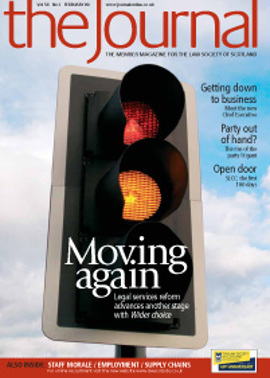Beware - simpler rules

The much anticipated abolition of the dispute resolution procedures is set to take place on 6 April 2009, when the relevant provisions of the Employment Act 2008 (EA 2008) take effect. In place of the dismissal and disciplinary procedures (DDPs) and grievance procedures (GPs) will come a statutory code of practice from Acas of about 10 pages in length. So, you might think, there would not be much for practitioners to get a handle on. However, the code is only part of the story. Into the mix must also be thrown a non-statutory guidance document (the draft of which is 74 pages plus), transitional provisions, and amendments to the Employment Tribunal Rules.
Acas code and guidance
The intention behind the revised Code of Practice on Discipline and Grievance is to take the focus away from mechanical processes and increase flexibility. It needs to be noted that the code does not apply to dismissals on grounds of redundancy, or due to non-renewal of a fixed-term contract, but focuses purely on discipline and grievance situations.
Failure to follow the code cannot of itself form an employment tribunal claim. Instead, tribunals will be able to take it into account when considering relevant cases, increasing or decreasing compensation by up to 25%. This is similar to the current position regarding failure to follow the DDPs or GPs.
The non-statutory guide is available in draft on the Acas website at the time of writing. Though it states: “employment tribunals are not required to have regard to guidance in this booklet” (emphasis added), given that it sets out reasonable steps for an employer to follow, a tribunal will inevitably do so. There is therefore more reading to do before April than might at first appear.
Transitional provisions
In addition, thanks to the transitional provisions attached to the abolition of the DDPs and GPs, 6 April will not signal an end to your own or your clients’ worries about their effects.
The DDPs will continue to apply after 6 April if, on or before 5 April, they apply to the situation at hand and the employer has either:
dismissed the employee; or taken relevant disciplinary action against him/her; or complied with step 1 or 2 of the standard DDP, or complied with step 1 of the modified DDP.
The GPs will continue to apply where the behaviour, etc about which the employee is seeking to bring a tribunal claim takes place wholly before 6 April 2009. The GPs will also apply where an employee wants to bring a claim on or before 4 July 2009 and the matters forming the basis of that claim continued beyond 5 April. Where the issues relate to equal pay or redundancy pay, the GPs will need to be followed for any claim brought on or before 4 October 2009.
There is therefore great scope for challenges presented by and arising from the DDPs and GPs to linger on for some time to come.
Tribunal rule changes
Supplementing the repeal of the dispute resolution procedures are a raft of amendments contained in the Employment Tribunals (Constitution and Rules of Procedure) (Amendment) Regulations 2008 (SI 2008/3240).
The obvious area affected is the procedure for the making, handling and acceptance of claims. New ET claim and response forms are set to be rolled out. In addition, the provisions governing fixed conciliation periods will be removed from the tribunal rules (reflecting the actual position adopted by Acas for some time).
These changes are consequential to the EA 2008, but there are others. There are provisions to align employment tribunal practice with that of the wider Tribunals Service, involving procedures for appointing an acting President, lay members, and disciplinary procedures affecting both lay members and employment judges.
Other amendments clarify the procedure for withdrawal and dismissal of claims generally, and more particularly provide for automatic dismissal of a claim following withdrawal where an Acas settlement has been reached.
The rules for requesting an extension to the 28-day time limit to present a response are also being brought into line with requests for formal tribunal orders. Where a party seeking an extension is legally represented, on making the application they will have to send a copy to all other parties, providing details of why the application is being made and notice that any objection must be communicated to the tribunal within seven days, copied to all other parties. After 6 April, if the relevant time limit has passed for submission of a response, an employment judge must issue a default judgment, unless satisfied there is insufficient information to do so – severely restricting the current discretion open to them.
Therefore, there is much to digest between now and April. That said, the changes are intended to simplify, streamline and make workplace dispute resolution and tribunal procedures more straightforward. But then, where did we hear that before…?!
In this issue
- Cross-border disputes: new rules
- Beyond the downturn
- Take a business view
- Amber alert
- ARTL - time to reflect
- Jack to the future
- Party time
- Head of steam
- Big names for Society's big date
- Employment: without prejudice
- Simple steps
- Taken on credit
- Positive returns
- Electrical storm on the horizon?
- What's on file?
- Ask Ash
- New cases, old problems
- Fair sharing of less
- Beware - simpler rules
- Shifting sands
- Offer you can't refuse
- Website review
- Book reviews
- Weakest link
- Servitudes - new ground?






